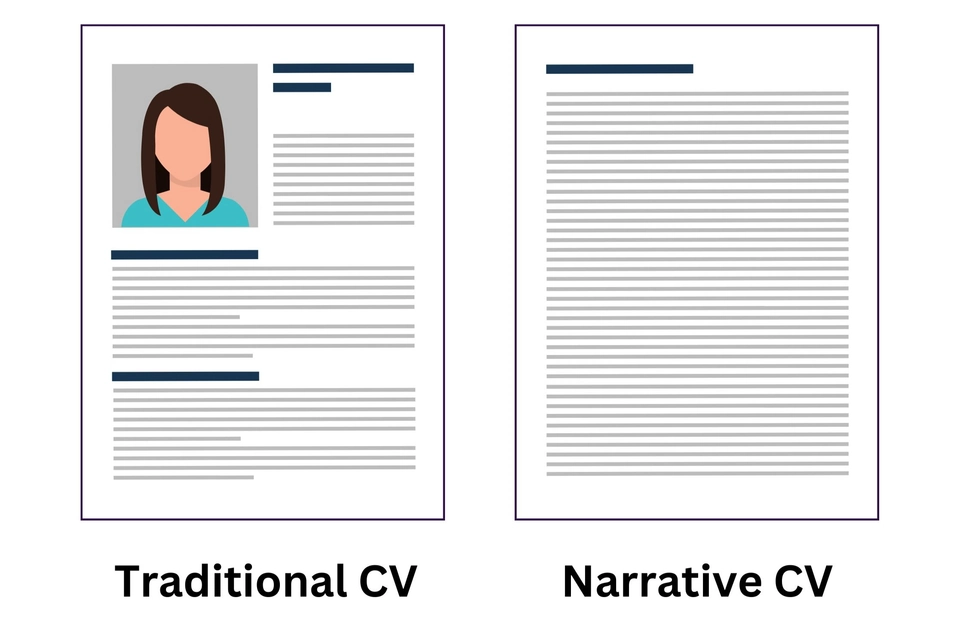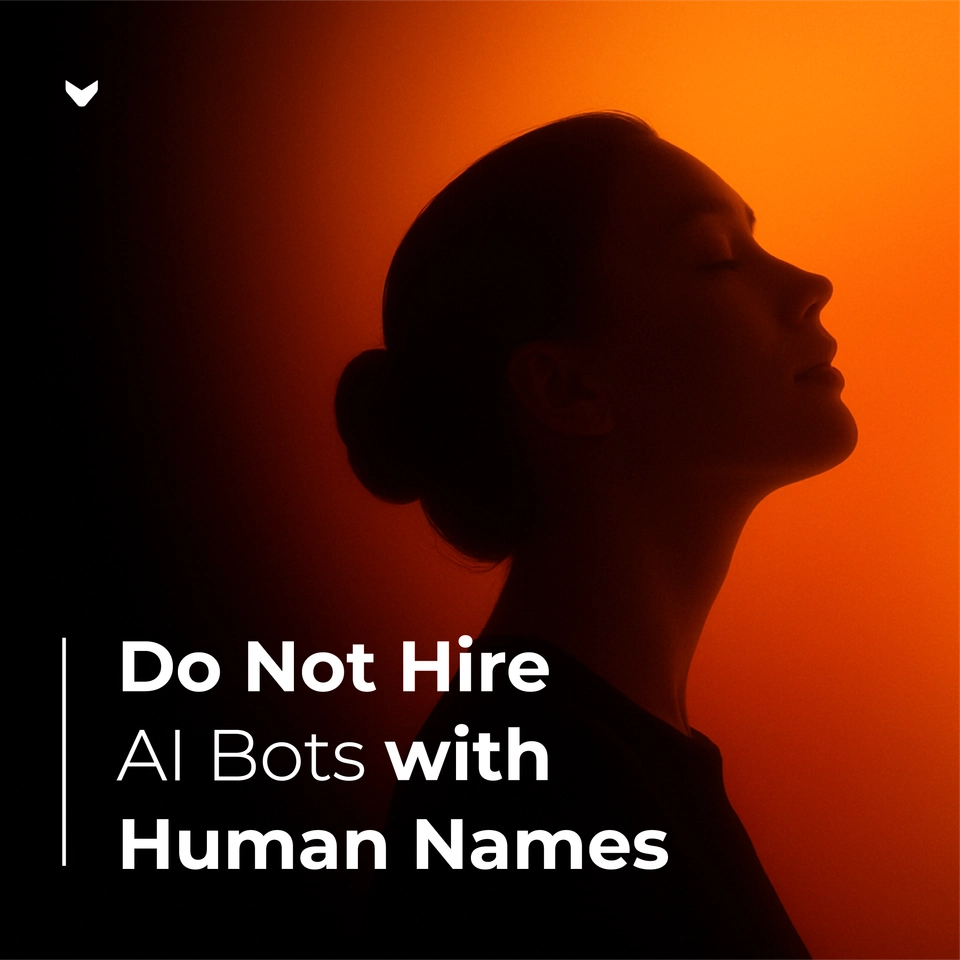- Introduction
- What is a narrative CV?
- But what do narrative CVs do for DE&I?
Exploring Narrative CVs: A New Approach to DE&I
Introduction
Traditional CVs often fall short of capturing the full essence of a candidate's abilities and experiences, relying on a mere list of qualifications. Enter the narrative CV-a departure from the norm, delving deeper to incorporate engaging written narratives that paint a vivid picture of a candidate’s story. While narrative CVs have gained considerable popularity in the academic and creative sectors, their potential impact on diversity, equity, and inclusion (DE&I) makes for an intriguing debate.
What is a narrative CV?
Unlike traditional CVs/resumes that predominantly rely on a straightforward list of qualifications, skills and work experience, narrative CVs delve deeper. They incorporate written narratives, presenting contributions, accomplishments, and a wide range of skills and experiences. By integrating descriptive paragraphs and anecdotes, narrative CVs offer contextual depth to the candidate's career journey, emphasising storytelling. This approach enables candidates to present their abilities and experiences in a more engaging and personalised manner. It marks a departure from metrics-based CVs, which typically consist of publication lists, employment details, and educational history with minimal context.
Candidates applying with narrative CVs may be asked to submit a sort of “one-page novel” of their career life, whereas some employers may provide prompts such as [1]:
-
How have you contributed to the generation of knowledge?
-
How have you contributed to the development of others?
-
How have you contributed to the wider research community?

Narrative CVs have gained significant popularity, particularly in academic and creative sectors. In creative industries, professionals can leverage the narrative format as a powerful tool to showcase their creativity, storytelling abilities, and unique perspectives. Whereas, in academic fields, narrative CVs provide a platform for candidates to present their academic journey, research interests, teaching philosophies, and notable accomplishments.
But what do narrative CVs do for DE&I?
By allowing applicants to demonstrate a broader range of skills and experiences, in many ways, narrative CVs have the potential to contribute positively to diversity, equity, and inclusion. Namely, unlike traditional CVs, narrative CVs can:
-
Allow candidates to justify varied career paths and highlight transferable skills: narrative CVs enable candidates to explain career changes and breaks, as well as highlight transferable skills gained through experiences outside of traditional employment.
-
Minimise bias: narrative CVs can reduce bias by shifting the attention from factual information, such as the candidate’s ethnicity and gender, to their accomplishments and capability.
-
Facilitate inclusive environments for employers: with candidates openly sharing their distinct experiences and perspectives, a narrative CV enables individuals to express their personal journey in their own voice. This approach promotes a sense of inclusion within the organization.
However, there are numerous ways in which narrative CVs may actual exacerbate DE&I issues. For instance, narrative CVs can:
-
Reinforce bias in reviewing the application: while narrative CVs aim to reduce bias by focusing on an individual’s achievement and personal growth, they can inadvertently reinforce biases. Narrative CVs rely heavily on personal storytelling, which can introduce subjectivity into the evaluation process; e.g., hiring managers may be drawn to narratives that align with their own experiences or preferences.
-
Reinforce bias in writing the application: gender bias may also lead to differences in how men and women write narrative CVs. For instance, research has shown that women are more likely to downplay their accomplishments and contributions when writing narrative CVs compared to men [2].
-
Widen socioeconomic discrepancies: Crafting a narrative CV takes time and effort and maybe even access to resources such as professional writing assistance. Candidates from disadvantaged socioeconomic backgrounds may not have the same resources or guidance to create compelling narratives, potentially putting them at a disadvantage.
-
Disadvantage those who are not good at storytelling: Some people may possess exceptional skills and qualifications but may struggle in writing narratives. Factors such as introversion or being a non-native English speaker can hinder one’s ability to write effectively, ultimately hindering their application.
In conclusion, narrative CVs offer benefits and potential downsides compared to traditional CVs, and organisations should carefully consider which approach is optimal for them. While narrative CVs provide candidates with an opportunity to showcase their abilities and experiences in a more engaging and personalized manner, they may also introduce subjective biases in the evaluation process and reinforce existing biases in writing applications. Ultimately, organisations need to weigh the potential positive impact on diversity, equity, and inclusion against the potential drawbacks and make an informed decision based on their specific needs and goals.
Author: Emma Bluck (Marketing and Scientific Communications Lead)
Start Building a Fairer Workplace With Us
Dive into the future of work with our expertly crafted solutions. Experience firsthand how MeVitae’s AI-driven solutions can make a difference. Request a demo or consultation now.
